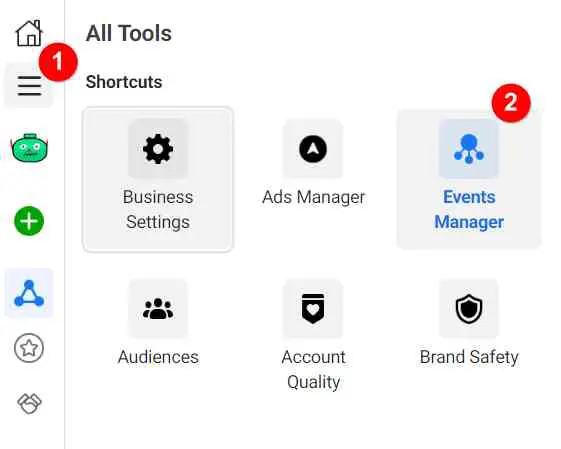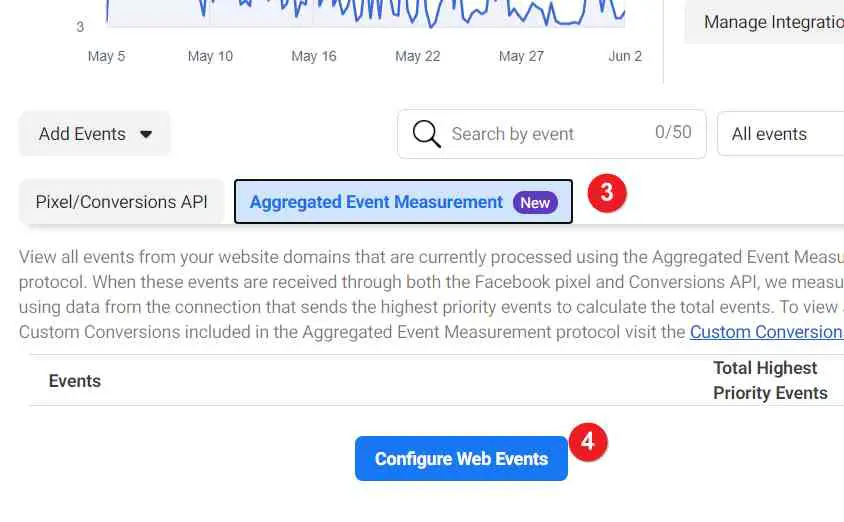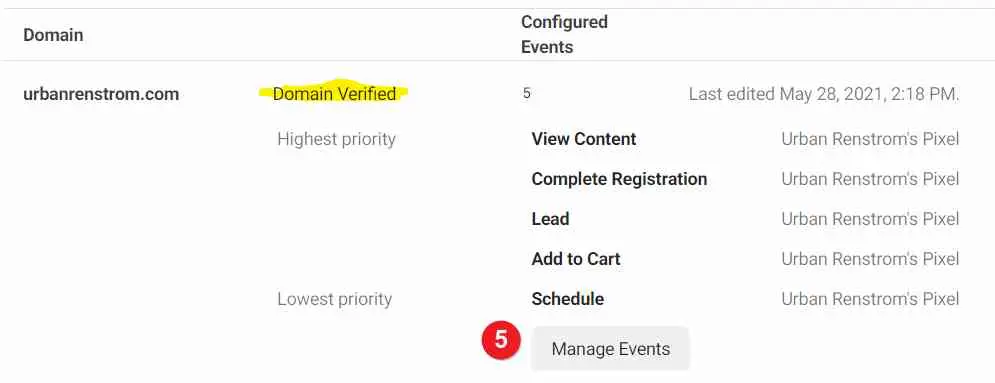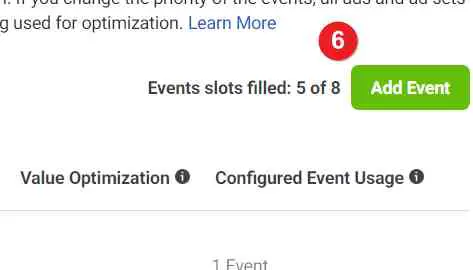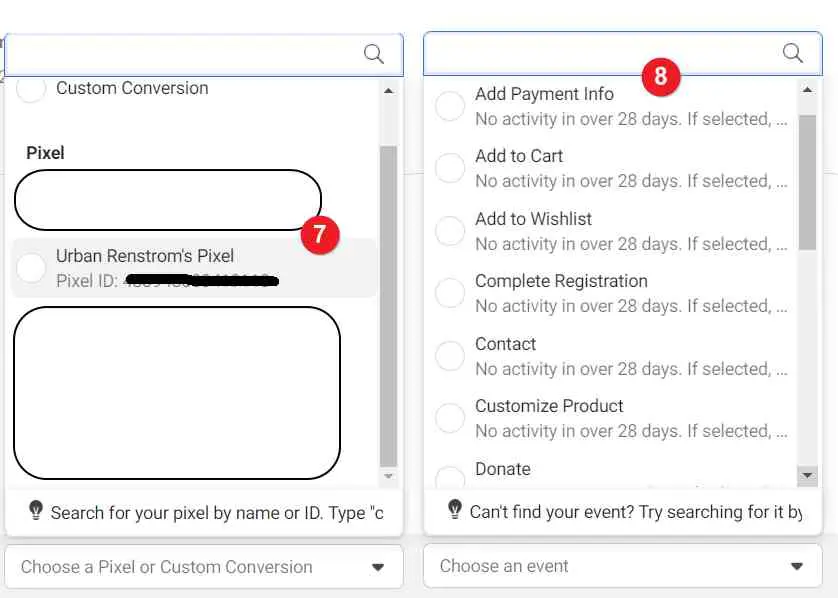Facebook Pixel Standard Events – Handpick the Brazen 8 for Maximum ROAS
Updates. Revisions. Changes. New Releases.
Why can’t they leave well enough alone?
Yes, why? It boils down to mega-giant tech fighting for control, power and money. Worse, your Privacy is the pawn in their online *game of thorns*.
What is a Facebook Pixel Standard Events and why only the Brazen 8?
Globally, any action a person takes on your website is an event. Or AN EVENT if your traffic and visitors are few and far between…
For example, if a person views a page, performs a search, completes a form, schedules a phone call, add a product to a shopping cart or makes a purchase, etc., all are all FB events.
If said person is logged into their Facebook, use an iPhone pre iOS14.5, or post iOS14.5 and allows Facebook to track then the Facebook Pixel *fires* and the event is logged by your pixel.
Events on your website can result from Facebook ads, Facebook post organic reach or a arrival from a search engine whilst logged into their Facebook.
Events are either Standard or Custom.
Facebook Standard events are predefined, common, conversion-related actions. See the below chart for a (partial) list of standard events.
Facebook pixel Custom events are actions that are not standard events, surprise! Custom events support parameters. For example the name of a product (content_name), currency,€, £, $ (currency), product id (content_ids) or Lifetime Value of a subscriber (predicted_ltv) or others.
Facebook pixel custom events are useful because you can place a value (€10, £10, $10) on an event. For example, if you know that an email subscriber is worth €10. Then when people submit their form and land on the thank you page the event fires and you know the value of the action.
Don’t worry, I am Urban Renström, there is always science and research involved in everything I talk about, teach, and demonstrate.
Why Care about Facebook Pixel Standard Events?
Care so you can track the actions people take on your website. Improve your Facebook Ads performance, your ROAS and stop wasting money!
Worse, the only way to run conversion campaigns and track actions (i.e. purchases, registrations) is using standard or custom events.
So before iOS 14.5, on April 2021, all 18 Facebook standard events were available. Now we get to choose only the brazen 8. Why 8? Because the iOS 14.5 Apple software change forced Facebook’s hand to change how people are tracked. The short, condensed, abridged version!
But, What is the Facebook Pixel?
The Facebook tracking pixel is an “analytics tool that allows you to measure the effectiveness of your advertising by understanding the actions people take on your website“.
The Facebook pixel is a small piece of code installed on your website. As hinted earlier, when a person visits your website, is logged into Facebook the pixel “drops a cookie onto their web browser that will track them…” This visit and specifically what action they take on your website is the event.
Let us be like mountain spring water clear – we cannot ‘open the pixel database‘ and see the personal details of people who visited your website.
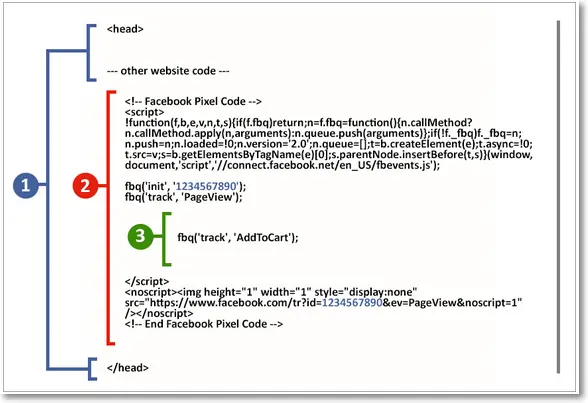
1- is the *head* section of your website.
2- is the Facebook Pixel base code
3- the Facebook Pixel Standard Event or Facebook Pixel Custom events code
This post walks you through on installing the pixel on your website.
I’m Confused by Which Facebook Pixel Standard Events Should I Choose?
So, each verified domain has 8 event slots are available. Which eight to choose depends on your business, website and advertising goals. And it depends on the stage of growth of your business.
Note, any of the eight can be changed at a later time – if your focus or goals change.
I’m #SorryNotSorry for the *it depends* answer. Because its still true.
But, choose the events that will send the data that is most valuable to your most critical business outcomes.
If you use purchase events with value optimization then this uses a at least 4 and maybe 8 event slots.
Choosing standard events for products (eCommerce) is different from services (lead generation). The eight Facebook standard events I choose for my clients and my own business are:
Services (lead generation) Events
- View content
- Complete Registration or Lead
- Schedule
- Contact
- Add to Cart
- Add Payment info
- Purchase
- Search
Products (eCommerce) Events
- View content
- Add to Cart
- Initiate checkout
- Add Payment info
- Purchase
- Add to Wishlist
- Search
- Customize product
Ok, Where Do I set up the Aggregated Events Measurements?
These are three preliminary step before you set up the standard events.
a) you must use the Facebook Business Manager and the admin has access to the pixels and domain.
b) Install and verify the Facebook Pixel on your website.
b) Verify your domain (www.my_website dot com) inside of Business Manager. Domain verification gives you domain ownership and control to edit Facebook Standard and custom events. See here about domain verification.
Once a and b are complete move on to setting up the Facebook Pixel Standard Events
Inside of your Business Manager click on the *hamburger* *1*.
then *2*, *Events Manager* and choose the appropriate pixel in the list.
*3* Towards the bottom, next to Pixel/Conversion API and click the *Aggregated Event Measurement*,
then *4*, *Configure Web Events*,
*5* Manage Events,
*6* Add Event,
*7* Choose a pixel (again if there are many)
*8* Handpick the Brazen 8 Standard Events.
The below table provides an explanation of 12 of the 18 standard events.
Definitions of Different Facebook Pixel Standard Events
These are the most common standard events.
| Website Action | Description |
|---|---|
| View content | A visit to a web page you care about. E.g. a blot post, service page, product or a landing page. The view content informs you if someone visited a specific URL. Not what they do or see on that web page. |
| Complete Registration | Submission of email, name etc., in exchange for a service provided by your business. E.g email signup. |
| Subscribe | The start of a paid subscription for a product or service you offer. |
| Lead | Submission of info, e.g. name, email, with the understanding that they will get contacted by your business. E.g. free trial, contact us. |
| Schedule | The booking of an appointment to visit one of your locations. |
| Start trial | The start of a free trial of a product or service you offer. For example, a trial subscription. |
| Submit Application | The submission of an application for a product, service or program you offer. For example, a credit card, educational program or job. |
| Contact | A telephone, SMS, email, chat or other types of contact between a customer and your business. |
| Add to Wishlist | E.g. eCommerce wishlist. Clicking the *Add to Wishlist* button on a website. |
| Add to cart | The addition of an item to a shopping cart or basket. |
| Initiate checkout | The start of a checkout process. For example, clicking a Checkout button. |
| Add payment info | Addition payment information during the checkout process. Adding an address, CC info etc. |
| Purchase | The completion of a purchase, usually signified by receiving an order or purchase confirmation, or a transaction receipt. For example, landing on a Thank You or confirmation page. |
| Customize product | The customization of products through a configuration tool or other application your business owns. |
| Donate | The donation of funds to your organization or cause. |
| Find Location | When a person finds one of your locations via web, with an intention to visit. For example, searching for a product and finding it at one of your local stores. |
| Search | A search performed on your website, app or other property. For example, product or travel searches. |
Configure Events to Use Aggregated Event Measurement
https://www.facebook.com/business/help/422408905612648
What to do with Facebook Pixel Standard Events
use the Facebook Standard and Facebook custom event in when using the Conversion Objective.

